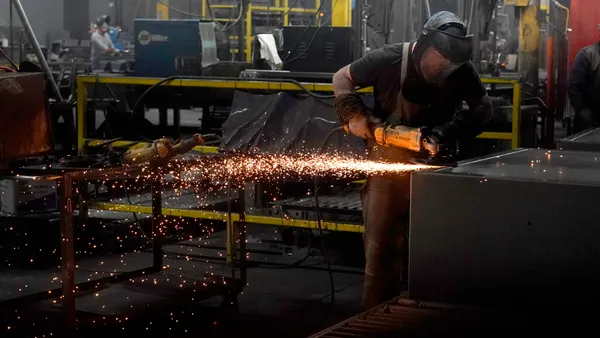Dive Brief:
- To keep pace with need growing across the country, HempStaff, a cannabis-industry recruiting agency, announced its first webinar for medical marijuana dispensary training for Florida, Arizona, New Mexico and Texas job seekers, the company announced via press statement. The webinar will prepare students to work in medical marijuana dispensaries through a series of four-hour-long online classes, the statement said.
- Students will learn industry science in the courses, which will review cannabinoids, terpenes and the varying types of cannabis offered across the country, as well as how to recommend appropriate dosages and products, HempStaff said. Training is tailored to each state and includes background information on the industry, its regulations and local laws, according to the statement.
- To help the learners find work, the course offers a resume template, instructions on writing a cover letter and interview tips, HempStaff said. A test at the end of the course will allow students an opportunity to receive HempStaff certification to add to their resume, said the company, which has already trained more than 7,000 marijuana workers in 20 states.
Dive Insight:
The cannabis industry continues to bloom with more states and cities legalizing its use for medical and recreational purposes. But growth in recent years has outpaced training as many vendors and growers await regulations from their locality. Competition for front-facing employees in a tight applicant market is pitting many sellers against other kinds of retailers, who also feel the pinch of today's low unemployment. Last year, San Francisco even proposed a law that would require employers to hire a percentage of their marijuana workers from the city's apprenticeship program.
As market share grows, many look to training modalities created for the cannabis industry to serve other up-and-coming industries like craft brewing. Rapid growth industries are often caught between high consumer demand and the need to scale training quickly and effectively for workers. Trying out new training methods and staying up-to-date on new certifications that confirm workers' skills may be helpful for HR professionals in rapid growth industries.












